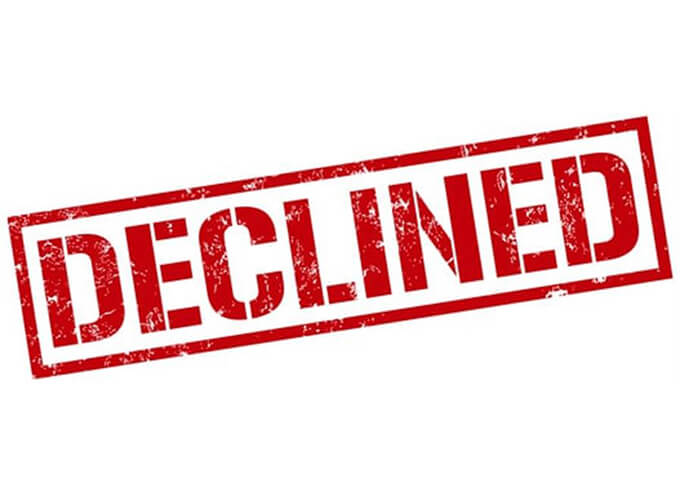
A S.74 Notice is a statement outlining the reasons why the insurer is declining the claim.
What is a Section 74 Notice?
Section 74 of the Workplace Injury & Compensation Act 1998 requires an insurer who disputes liability in respect of a claim or any aspect of a claim to give notice of the dispute to the worker in writing.
A decision to dispute liability should not be made lightly. The insurer must consider all evidence relevant to the claim including all medical reports and plans submitted on behalf of the worker, and any independent reports obtained by the insurer before declining liability.
Before giving notice of a decision to dispute liability, the insurer must also carry out an internal review of all of the evidence. The review is to be conducted by someone other than the person recommending the proposed decision to decline liability.
A Section 74 Notice must:
- Contain a concise and understandable statement detailing the reasons why the insurer disputes liability.
- Contain a statement identifying all the reports and documents submitted by the worker in making the claim for compensation.
- Contain a statement identifying all the medical reports and other documents obtained by the insurer.
- Provide a copy of all medical reports and other reports obtained by the insurer relevant to the claim whether or not the reports support the reasons for the decision.
If an insurer declines liability, they are required to give a period of notice before terminating weekly payments of compensation. That notice period is 2 weeks if weekly payments have been received for less than a year and 6 weeks if weekly payments have been received for more than 1 year.
Why would the Insurer decline my claim?
An insurer may stop weekly payments of compensation or refuse to pay for medical treatment if they have obtained credible evidence to indicate that they are not liable for all or some part of a claim.
The reasons for disputing liability are varied but may include that the insurer has evidence to prove:
- That the worker has not sustained an injury in the course of employment.
- That the worker is not a worker as outlined in the Act.
- That employment is not a substantial contributing factor to the injury as set out in Section 9A.
- That psychological injury was wholly or predominately caused by reasonable action of the employer as set out in Section 11A.
- That the incapacity for work is not a result of the injury.
- That the incapacity for work is a result of some pre-existing condition or abnormality.
- That the treatment requested is not reasonably necessary.
The most common reason we see for the insurer to decline a claim is that the injured person has recovered from the injury and any ongoing problems are due to a pre-existing condition. The insurer will obtain a medical report from one of its doctors which usually say that any problems now are due to a degenerative condition rather than the effects of any injury. Essentially these reports are saying the injury is due to old age!
We have yet to lose a case in the Workers Compensation Commission in regard to overturning an insurers decision made on this basis. An injury only needs to aggravate a pre-existing condition for the insurer to be liable and pay weekly compensation and medical expenses.
What is not a decision to decline liability
A decision to reduce or terminate weekly compensation on the basis that an injured worker is now fit to return to work or fit to return to some other suitable employment is not a liability dispute. A Section 74 Notice will not be given in such circumstances.
Such a decision is a dispute in relation to the capacity of the worker to work and is known as a Work Capacity Decision. These disputes are not determined by the Workers Compensation Commission and are in fact determined by WorkCover and WIRO. Unfortunately, lawyers are not allowed to be paid in relation to disputes in respect of work capacity.
How to challenge a Section 74 Notice
There are two ways to challenge a Section 74 Notice:
- Request an internal review from the insurer; and/or
- Make an application to the Workers Compensation Commission of NSW to appoint an independent arbitrator to hear and determine the issue in dispute.
The Section 74 Notice will contain details of how to request a review of the claim from the insurer. Any such request to an insurer must be carried out in accordance with the insurers’ complaints and disputes management model. Review is to be carried out by someone other than the original decision maker.
In our experience internal reviews almost never result in the decision being overturned. It is usually a complete waste of time and only allows the insurer to “fix up” their reasons for declining the claim in the first place.
If the decision to decline the claim is disputed in the Workers Compensation Commission the insurer is not allowed to raise any other issues other than those that were outlined in the Section 74 Notice. By requesting an internal review, this often allows the insurer a second chance to prepare the Section 74 Notice and include further issues to dispute. In our view, it simply allows the insurer to do a better job declining your claim the second time around. For this reason we rarely request an internal review.
The better option is to consult an accredited specialist in personal injury law immediately to discuss your options. If the lawyer believes that the insurer has made an error and that you will be successful in overturning the decision an application can be made to the Workers Compensation Commission. This application will request the Workers Compensation Commission to appoint an arbitrator to hear and determine the dispute.
What happens when my dispute is referred to The Workers Compensation Commission?
Your lawyer will need to review the Section 74 Notice and discuss the claim with you in depth. Your lawyer will need to be satisfied that the insurers’ decision to decline your claim is incorrect.
If so, your lawyer will obtain additional medical evidence to support your claim. This usually involves a period of about 3 months or so to obtain your medical records from your treating doctors, arrange for you to attend an independent medical examination to obtain further medical evidence in support of your claim and prepare a detailed statement from you.
Once all medical and documentary evidence is available to support your claim, your lawyer will file an application in the Workers Compensation Commission to dispute the decision by the insurer. The Workers Compensation Commission will appoint an independent arbitrator to hear and determine the issues in dispute.
The process is as follows:
- Your lawyer files an Application for Dispute resolution with the WCC which includes all evidence to be relied upon.
- The Insurer or its lawyer must file a Reply with their evidence within 28 days.
- The matter is reviewed by the WCC and a telephone conference is appointed usually 28 days later.
- Your lawyers is notified by the WCC of the date and time of the telephone conference.
- Your lawyer will notify you of the details of the telephone conference which you must attend either in person or via telephone.
- At the telephone conference the Arbitrator will discuss the matter and the issues in dispute. The Arbitrator will see if the matter can be resolved by agreement. If not the Arbitrator will make orders for further preparation of the claim and set down the matter for a face to face Conciliation/Arbitration Conference. Your lawyer will do the majority of the talking at the telephone conference.
- Your lawyer will then confirm in writing the date and time of the Conciliation/Arbitration Conference which is usually 28 days following the telephone conference.
- If further preparation is necessary, your lawyer will contact you for further information.
- The Conciliation/Arbitration Conference has two phases:
- The Conciliation phase is where the Arbitrator will discuss the issues and see if the parties can reach an agreement, if no agreement can be reached the matter proceeds to;
- The Arbitration phase where sometimes questions are asked to clear up any unknown matters and the lawyers are then asked to submit what orders the Arbitrator should make. The Arbitrator then makes a written decision within 21 days.
- The Arbitrators decision is final and binding on both you and the insurer unless the Arbitrator has made an error of law.
- The outcome is confirmed by the WCC within 28 days from the date of Arbitration.
- The insurer will then pay the compensation awarded to you. If any amount is payable as a lump sum this is usually paid by way of a cheque in your name sent to your lawyer about 6 – 8 weeks later.
Do I need to pay any legal costs?
Under the Workers Compensation Act, insurers are no longer required to pay a workers’ legal costs and disbursements.
A workers’ legal costs and disbursements are now paid through the Independent Legal Assistance and Review Service (ILARS) which is a function of WIRO. ILARS approves Lawyers to be able to act for injured workers.
If you require a lawyer to assist you in a dispute with an insurer, then the lawyer applies to ILARS for payment of legal costs and disbursements. ILARS will generally approve payment of legal costs and disbursements and your lawyer will be paid directly by ILARS at the conclusion of your claim.
You are therefore not responsible for payment of any legal costs and disbursements as long as ILARS approves funding.
What happens if my claim is successful?
If you challenge the insurers decision to decline liability and the matter is heard before an Arbitrator of the Workers Compensation Commission, the arbitrator will make a determination as to whether the insurer was correct in declining liability for your claim, usually within 21 days of the hearing date.
If the decision is overturned the insurer will need to immediately recommence payment of weekly compensation, including paying back pay for any period in which they have refused to pay weekly compensation in the past and/or the insurer will be required to reimburse and/or pay for any reasonably necessary medical treatment.
To continue to receive weekly payments you will need to obtain a WorkCover Certificate of Capacity from your nominated treating doctor.
In relation to ongoing medical treatment you will need to obtain prior approval from the insurer before incurring treatment.
If you have any question at all, no matter how silly you think they are, please contact me and outline your circumstances and I will personally respond. For more information on Workplace Compensation Claim Success, read our guide here.












